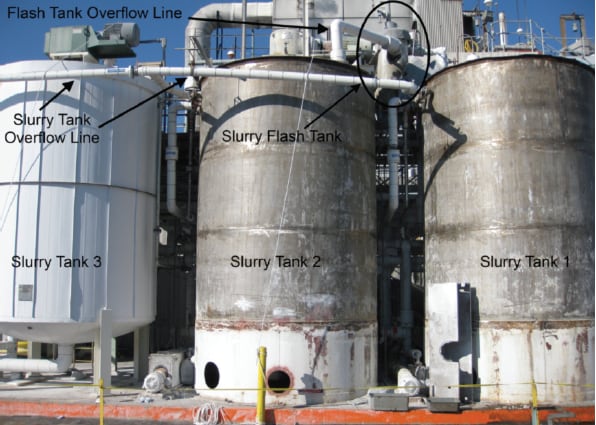The US Environmental Protection Agency (EPA) said the fine was to settle Clean Air Act violations at the Tonawanda, New York facility.
Ignition of flammable vinyl fluoride that had seeped inside a 10,000 gallon process tank at the facility resulted in the explosion, according to the US Chemical Safety and Hazard Investigation Board (CSB).
The board concluded hazards had been overlooked by DuPont, which EPA’s investigation confirmed.
DuPont statement
DuPont said it had reached a civil settlement with the EPA under the Clean Air Act stemming from a 2010 welding incident involving a contractor fatality and a subsequent 2012 EPA inspection.
Warren Hoy, DuPont Yerkes plant manager, said safe and reliable operations are top priorities and it has made extensive modifications to the process and operating procedures at the site.
“We have already acted on the recommendations from the incident investigations conducted by the CSB, the Occupational Safety and Health Administration (OSHA) and our own internal investigation, and have implemented engineering and procedural safeguards to prevent recurrence and to limit emission of vinyl fluoride vapors," he said.
“In conjunction with a penalty payment, the site will also perform a Supplemental Environmental Project for the Brighton Fire Department, Tonawanda, New York, which will include the purchase of essential first responder equipment and manufacturer-provided training for the detection of radio-isotopes and chemical gases.
“This project was undertaken in connection with the settlement of an enforcement action initiated by the EPA against E.I. duPont de Nemours and Company under the Clean Air Act.”
Vinyl fluoride is used to make plastic products.
Improvements since incident
DuPont has since made $6.8m in chemical safety-related improvements at the facility.

The EPA identified several areas of operations that had been in violation of the Clean Air Act, all of which were addressed prior to the settlement.
DuPont installed equipment and developed more stringent safety procedures to reduce the risk of a similar explosion; worked with the EPA, corrected its identified deficiencies; and has completed chemical safety-related improvements.
The firm has upgraded its process to analyze potential vinyl fluoride hazards, changed configuration of equipment to reduce the chance of dangerous gas build-up, improved vinyl fluoride monitoring and processes and operating procedures at all facilities to avoid a similar incident.
In the settlement, DuPont will spend $112,000 to purchase vapor and radiation detection equipment for the local fire department and to pay for training.
DuPont has owned and operated the 100 acre facility since 1921. It employs more than 600 workers and manufactures Tedlar, a polymer used as a film in photovoltaic panels and Corian, used to make countertops and other durable surface products.
The Tedlar process converts VF into polyvinyl fluoride (PVF). PVF is used in a variety of applications as a film or a surface protector due to its resistance to weathering and flammability-lowering properties.
Judith A. Enck, EPA’s regional administrator, said the investigation highlighted the importance of preventing, preparing for and responding quickly to chemical releases and other incidents.
“It is imperative that DuPont and other businesses make protecting human health and the environment their top priority. The chemical explosion that happened at DuPont in Tonawanda must never happen again.”
OSHA investigated and issued ten citations to DuPont, and eight to Mollenberg-Betz (the contractor used to do specific repairs by DuPont).
The agency found several deficiencies in DuPont’s lockout and hot work procedures.
DuPont was fined for not including steps to isolate the slurry tank overflow line in their energy control procedure, and not installing blinds in the overflow line.
